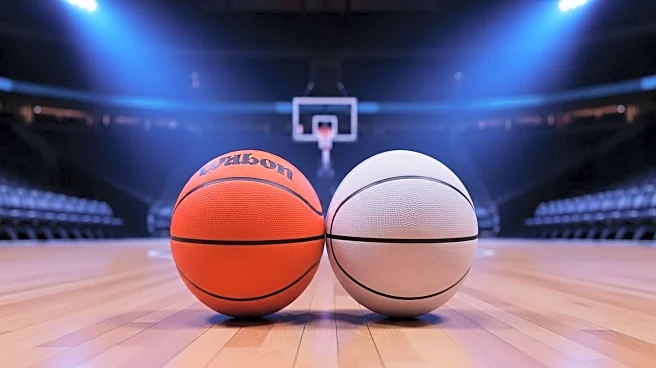What's Happening?
As the 2025 WNBA playoffs commence, players are not only competing for a championship but also negotiating the league's future through collective bargaining agreements (CBA). The league has seen significant growth in viewership, attendance, and sponsorship deals, making this negotiation period particularly impactful. The playoffs have expanded to a best-of-seven Finals, and players are advocating for better salary and revenue-sharing structures. Key players like Caitlin Clark and Paige Bueckers are absent due to injuries, but veteran stars are expected to shine. The league's growth trajectory is at stake, with a looming deadline for CBA negotiations on October 31.
Why It's Important?
The outcome of these negotiations could significantly impact the WNBA's financial structure and player compensation. With the league's 30th anniversary approaching, players are pushing for a fair share of the league's increasing revenue, including a historic $200 million media rights deal starting in 2026. A work stoppage could hinder the league's growth, but both sides aim to reach an agreement without long-term conflict. The negotiations are crucial for setting a precedent for future labor protections and ensuring the league's continued expansion and profitability.
What's Next?
The WNBA players and league officials are expected to continue negotiations leading up to the October 31 deadline. The playoffs will serve as a platform for players to demonstrate their value and reinforce their demands for improved compensation. The league's leadership has expressed a commitment to finding a balance between increasing player salaries and maintaining profitability for team owners. The resolution of these negotiations will likely shape the league's future and influence its growth trajectory.
Beyond the Headlines
The negotiations highlight broader issues of gender equity in professional sports, as players seek recognition and fair compensation in a historically male-dominated industry. The WNBA's growth and the players' advocacy efforts could inspire similar movements in other women's sports leagues, potentially leading to systemic changes in how female athletes are valued and compensated.











